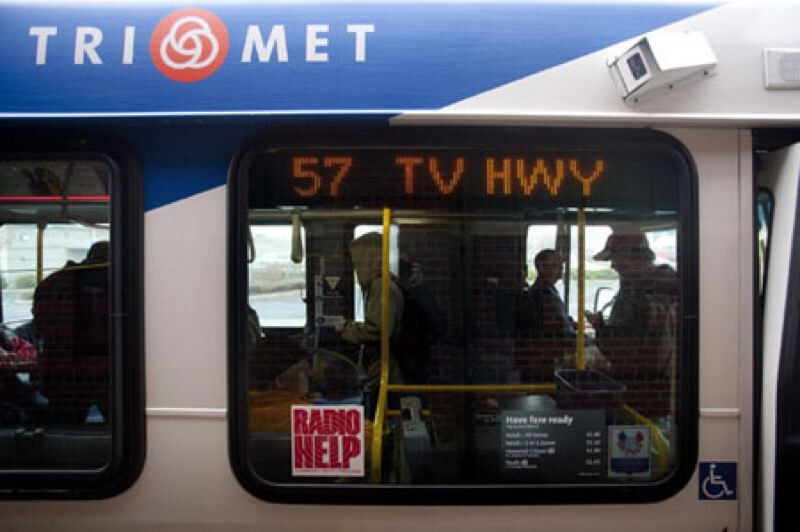TriMet reaches out to Hispanic riders to ease language conflicts
Published 12:00 am Thursday, July 5, 2012

- TriMet is investigating another incident between a driver and a Latina passenger with crying children on a Line 57 bus. TriMet has developed a program to make riding TriMet easier for passengers who speak a language other than English.
With a TriMet investigation wrapping up this week, there are several unanswered questions about last week’s revelation that a bus driver on the No. 57 line was involved in a second incident with a mother with crying children in Forest Grove.
Trending
Did the mother, as another passenger suggested, instigate the late-night verbal sparring on June 7 that ended only when a police officer arrived?
Why did the driver refuse the officer’s request to let the family back on the bus?
Was language and race a big part of the conflict in the June 7 incident?
Trending
Although less than 5 percent of bus drivers are Latino, it’s clear that the transit agency has taken several steps to ensure TriMet drivers have the tools to interact with riders who may speak English as their second language.
Line 57 travels from the Beaverton Transit Center west along the Tualatin Valley Highway into Forest Grove. The area has a large Hispanic population.
TriMet doesn’t track complaints based on race or ethnicity, but agency spokeswoman Mary Fetsch says she hasn’t seen a trend of incidents involving Hispanic or Spanish-speaking passengers.
“It doesn’t rise to a level I am aware of,” Fetsch says.
Jonathan Ostar, the executive director for OPAL Environmental Justice Oregon, a nonprofit that advocates for transit riders, says that when Latinas report issues with bus drivers, it’s usually because they are trying to ride with children and strollers.
“It may be a language barrier (or) it may also have to do with a lack of understanding or awareness,” he says. “We try to encourage greater understanding between bus riders and drivers.”
Limited English
Martin Gonzalez, TriMet’s multicultural program manager, says he hears occasional complaints about bus drivers from Latino passengers. But Gonzalez says passengers who complain often don’t document all details of the incident, such as the time of day and vehicle number of the bus, making it difficult to investigate.
For years, TriMet has worked to better serve passengers who often don’t speak English as their first language.
In 2006, TriMet received a grant from the Federal Transit Administration to develop a limited English proficiency plan. At the time, it was the only such program in the country, Gonzalez says, and TriMet is now a model for other transit districts.
Gonzalez was hired to develop the plan, and said it’s about reaching out to communities of people with limited English proficiency and making it easier for everyone to use public transportation.
“The program in itself is trying to provide better access to people,” he says.
The program so far has helped set up ticket vending machines that offer instruction in English and Spanish, Gonzalez says, and has translated some written materials such as schedules and travel tips into Spanish.
Making transit simpler
Gonzalez says the federal grant funding the limited English program expired this year, but TriMet kept the program going by rolling its costs into the general fund budget. He hopes to keep developing it by creating icons that can make using TriMet even simpler.
Even before the grant, TriMet offered instruction in “Farebox Spanish” to bus drivers who wanted to learn some basic helpful phrases, and Fetsch says many drivers took advantage of it.
However, TriMet has since shifted its focus when it comes to training bus operators, and no longer offers “Farebox Spanish.” TriMet’s main training priorities are about security, customer service and safety, Fetsch says.
Maria Ruiz, the Cornelius mother who was kicked off the bus with her four children June 7, says she was relieved when the Forest Grove police officer who responded to her conflict with a bus driver could speak Spanish.
While the officer, Ernesto Villaraldo, couldn’t diffuse the argument between Ruiz and the bus driver, who ordered she and her four children from the bus shortly before 11 p.m. on a rainy Thursday night, Villaraldo decided to drive Ruiz and her children home to Cornelius.
TriMet makes no specific effort to recruit Hispanic or bilingual bus drivers, according to Fetsch, nor track which drivers speak multiple languages.
But TriMet does know the racial and ethnic mix of its employees. As of June 30, 72.7 percent of bus drivers were white, 14.7 percent were African American, 4.5 percent were Hispanic or Latino and 3.9 percent were Asian.
Fetsch says bilingual bus drivers are “treated no differently than all of the other operators.” They receive the same salary, and are not placed on routes where they might interact with more Latino passengers.
Fetsch says bus drivers need to solve problems, including those related to language barriers.
“The bottom line is that operators who provide good customer service always seem to find a way to provide good service,” she says.







